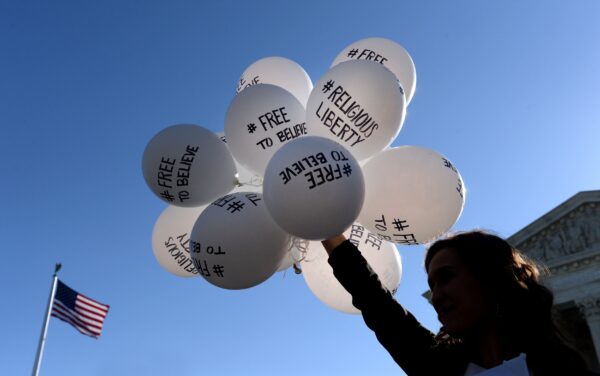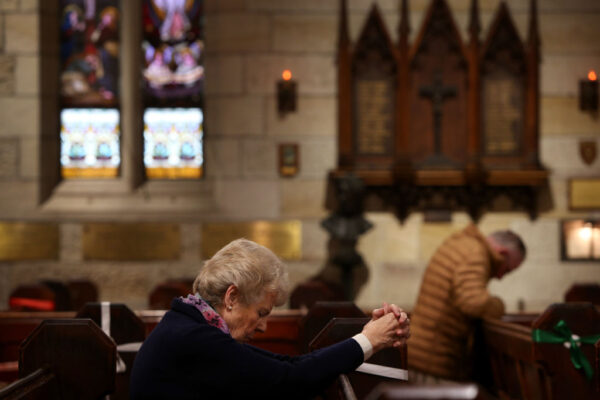


Commentary
On Jan. 27, the Australian Law Reform Commission (ALRC) released a consultation paper on its inquiry into religious, educational institutions and anti-discrimination laws.
The Terms of Reference outlined in the paper require the ALRC to develop proposals for protections against discrimination of students and staff while ensuring that religious educational institutions “can continue to build a community of faith.”
However, on Feb. 13, a letter signed by the leaders of all major faiths addressed to the federal Attorney-General Mark Dreyfus (pdf) conveys their “deep disappointment” with proposed reforms released for comment by the ALRC.
The ALRC paper outlines four legislative propositions. While providing that religious schools and colleges can still teach religious doctrines or beliefs on sex and sexuality and require their staff to do so, these propositions will be effectively undermined.
Preferencing in the “selection, appointment, and promotion” (not termination) of staff can only occur where teaching religion is a “genuine requirement” of the position, and the differential treatment is “proportionate to the objective of upholding the ethos of the religious institution.”
In making these decisions, however, no consideration may be given to staff behaviour, views or identity relating to sexual activity, orientation, or gender identity.
Moreover, staff at faith-based schools can be required not to “actively undermine” the ethos of their employer, but no criteria relating to sexual activity or orientation or gender identity can be imposed.
Thus, faith-based schools would be forced to employ not just nominal adherents, but individuals actively at odds with the teachings that underpin the special ethos of those schools, or face legal penalties.
The effect of these propositions will be to place severe limitations upon the ability of faith-based schools to retain their ethos in respect of both students and staff, and have the consequences of preventing religious schools from requiring staff to teach in line with the school’s faith.
“Can you imagine a Catholic school employing a leader of a school who advocates atheism or thinks that the beliefs of our church are silly?” the Catholic Bishop of Darwin, Charles Gauci, declared, when similar laws were proposed in the Northern Territory.
Schools may preference a staff member who will teach the school’s beliefs around sexuality—but only if they can present other alternative views.
The ALRC is therefore proposing to force religious schools to teach other moral and sexual codes, and they must be promoted as viable alternatives, thus effectively substituting the ALRC’s beliefs on gender and sexuality for those of a faith-based school.
What is more, staff would not have to live the faith, nor even hold the faith, as long as they do not “actively undermine” the faith. Thus, Christian schools would be forced to employ not just nominal adherents but individuals actively at odds with the teachings that underpin the unique ethos of faith-based schools or face legal penalties.
Religious leaders say the interpretation would be a legal nightmare given the unreasonable test of determining what would constitute “teaching, observance or practice of religion being, genuinely, a part of the role.”
Further, the approach of the ALRC reflects a total misunderstanding of faith, in that you can apparently “not actively undermine” the religion in your teaching, your way of engaging with students, your life in the staffroom or the department building, but live completely the opposite of what the school teaches.
So your faith is a set of abstract ideas that you intellectually assent to, and that’s it.
As Anglican Bishop of South Sydney, Michael Stead stated in an interview with ABC Sydney, the ALRC’s proposal that schools be required to employ “a religious studies teacher who doesn’t actually believe (or) practise the things that they’re teaching” mandates hypocrisy.
It may seem ludicrous, but as he clarified, the ALRC’s proposal means “you could have the situation where someone is required to teach the Ten Commandments saying “You shall not commit adultery,” but then can also say: “I don’t personally believe that and I’m having an affair with the science teacher.”
It is precisely the education faith-based schools provide that makes them so attractive to parents and students alike. The proposals also represent an attack on freedom of religion in general and a form of reverse discrimination by effectively denying parents the right to send children to schools with religious teachings in accordance with their religious and moral convictions. This right is enshrined in international law.
There is also the potential for the reforms proposed by the ALRC for religious schools to be applied to other religious institutions. For example, the Catholic Church, along with several other Christian denominations, runs services ranging from schools to aged care and hospitals and provides social support to people in need across the community.
Will the ALRC presume to tell them whether or not religious identity should be a factor in managing employment matters, which is now the case in Victoria?
The new draconian regime proposed by the ALRC to curtail religious freedom thus bears all the hallmarks of an authoritarian state.
Views expressed in this article are the opinions of the author and do not necessarily reflect the views of The Epoch Times.


